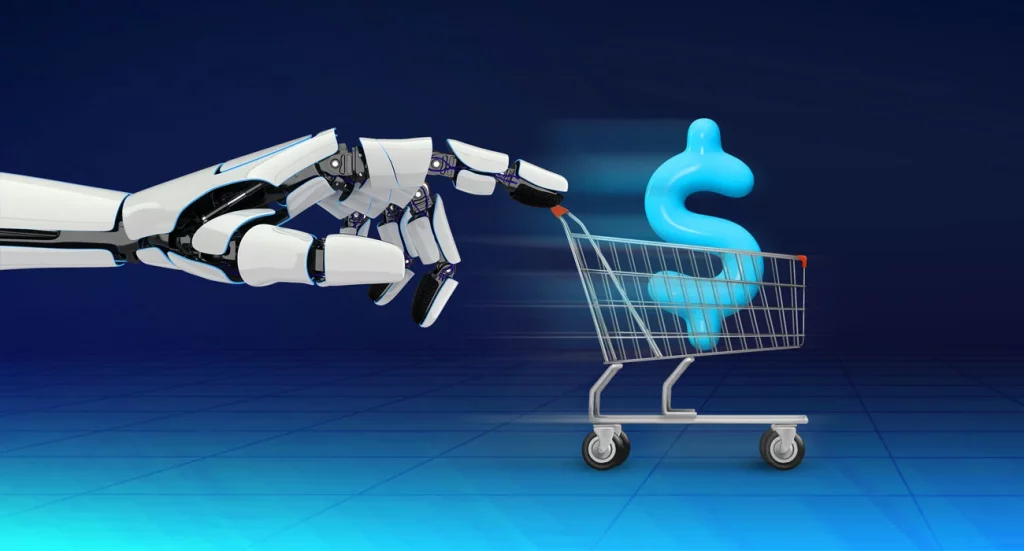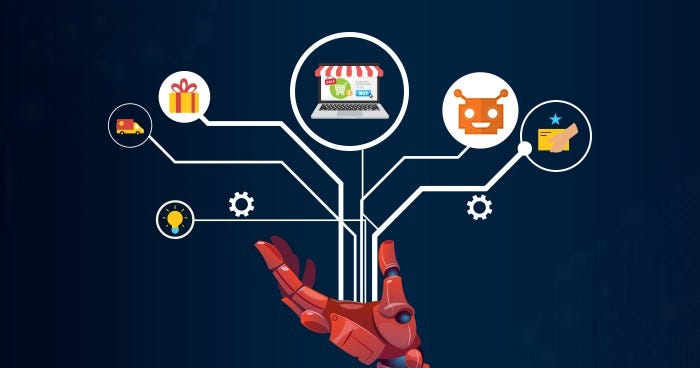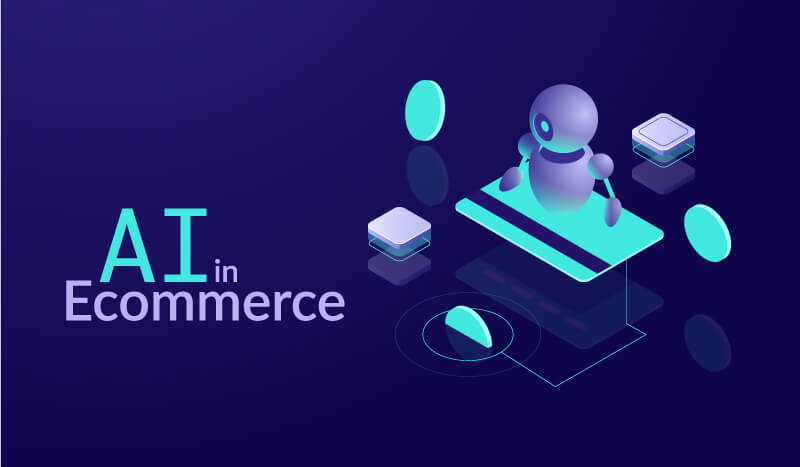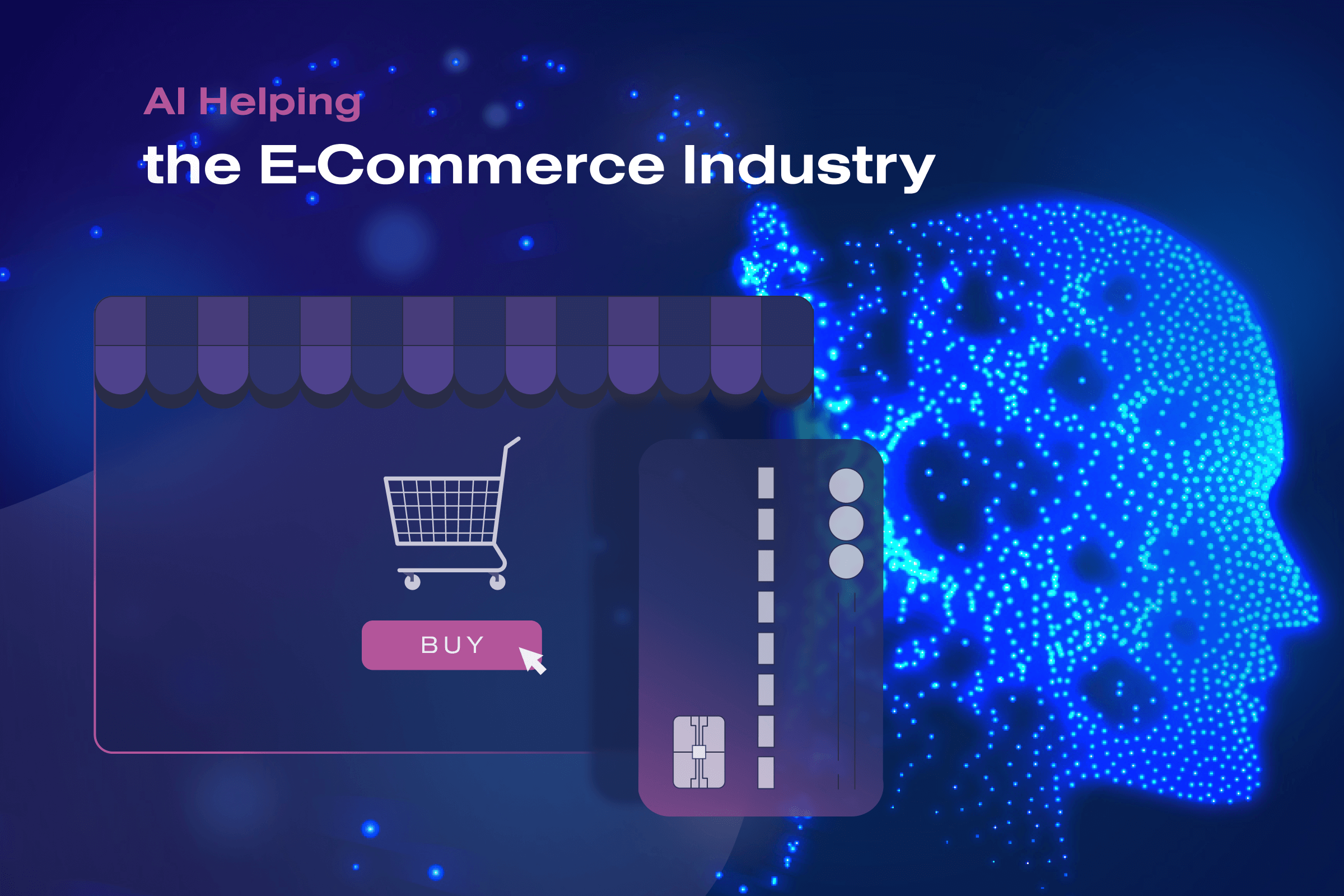The role of AI plays a crucial role in personalized ecommerce. E-commerce is one of the fastest-growing industries in the world, with global retail e-commerce sales expected to reach $8.1 trillion by 2026. However, as the number of online stores and products increases, so does the challenge of providing a satisfying and engaging shopping experience for customers. Customers today have more choices than ever before, but they also have higher expectations and lower attention spans. They want to find the products that match their needs, preferences, and tastes quickly and easily, without having to browse through thousands of irrelevant options. They also want to feel valued and recognized by the brands they shop from, and receive personalized offers and recommendations that suit their interests and goals.
This is where artificial intelligence (AI) comes in. AI is a technology that enables machines to perform tasks that normally require human intelligence, such as understanding natural language, recognizing images, and learning from data. It can help e-commerce businesses to create personalized shopping experiences for their customers, by analyzing large amounts of data and delivering relevant and timely content, products, and services. AI can also help e-commerce businesses to optimize their operations, reduce costs, and increase conversions and loyalty.
In this blog post, we will explore some of the benefits and use cases of AI personalization in e-commerce, and how it can revolutionize the online shopping experience for both customers and businesses.
Benefits of AI personalized ecommerce
Personalization is the key to creating a competitive advantage and a loyal customer base in e-commerce. According to a report by Epsilon, 80% of consumers are more likely to make a purchase from a brand that provides personalized experiences. Personalization can also increase customer retention, as 44% of consumers say they will likely become repeat buyers after a personalized shopping experience.
AI can enable e-commerce businesses to deliver personalized experiences at scale, by using data and algorithms to understand customer behavior, preferences, and context, and to provide tailored content, products, and services accordingly. Some of the benefits of AI personalization in e-commerce are:

Increased customer satisfaction and engagement:
AI can help e-commerce businesses to provide customers with relevant and useful information, such as product reviews, ratings, descriptions, and specifications, that can help them make informed purchase decisions. AI can also help e-commerce businesses to offer personalized product recommendations, based on customers’ past purchases, browsing history, demographic data, and other factors.
For example: Amazon uses AI to power its recommendation engine, which suggests products that customers might like, based on their shopping behavior and preferences. AI can also help ecommerce businesses to create personalized landing pages, banners, and pop-ups, that can capture customers’ attention and interest, and increase their engagement and time spent on the site.
Increased conversions and sales:
AI can help e-commerce businesses to optimize their pricing, promotions, and discounts, based on customer demand, inventory, and competition. AI can also help ecommerce businesses to create personalized marketing campaigns, that can reach customers at the right time, through the right channel, and with the right message.
For example, AI can help e-commerce businesses to send personalized emails, SMS, push notifications, and social media ads, that can encourage customers to complete their purchases, or to buy more products. AI can also help e-commerce businesses to create personalized loyalty programs, that can reward customers for their purchases, and incentivize them to return and buy more.
Reduced costs and improved efficiency
AI can help e-commerce businesses to automate and streamline their processes, such as inventory management, order fulfillment, customer service, and fraud detection. AI can help e-commerce businesses to reduce human errors, manual labor, and operational costs, and to improve accuracy, speed, and quality.
For example, AI can help e-commerce businesses to use chatbots and virtual assistants, that can provide 24/7 customer support, answer common queries, and resolve issues, without the need for human intervention. AI can also help e-commerce businesses to use image recognition and natural language processing, that can enable customers to search for products using images or voice, and to find the products they are looking for faster and easier.
Use cases of AI personalized ecommerce
AI personalization can be applied to various aspects of the e-commerce experience, from product discovery to purchase to post-purchase. Here are some examples of how e-commerce businesses are using AI to personalize their customer journeys:



Product discovery due to AI personalized ecommerce:
AI can help customers to find the products they are looking for, or to discover new products that they might like, by using data and algorithms to provide personalized product recommendations, search results, and filters. For example, Netflix uses AI to recommend movies and shows to its users, based on their viewing history, ratings, and preferences.
Netflix also uses AI to create personalized thumbnails for each user, that can highlight the aspects of the content that are most appealing to them. Another example is Stitch Fix, an online personal styling service, that uses AI to curate personalized boxes of clothing and accessories for its customers, based on their style profile, feedback, and preferences.
Purchase:
AI can help customers to make purchase decisions, by providing them with personalized information, such as product reviews, ratings, descriptions, and specifications, that can help them compare and evaluate different products. AI can also help customers to visualize how the products will look or fit, by using augmented reality (AR) and virtual reality (VR) technologies, that can create realistic and immersive simulations.
For example, IKEA uses AI and AR to enable customers to see how its furniture and products will look in their homes, using their smartphones. Another example is Warby Parker, an online eyewear retailer, that uses AI and AR to enable customers to try on glasses virtually, using their selfies.
Post-purchase:
AI can help customers to have a positive post-purchase experience, by providing them with personalized support, feedback, and follow-up. AI can also help customers to stay connected and engaged with the brand, by providing them with personalized offers, recommendations, and rewards, that can encourage them to buy more products, or to refer their friends and family.
For example, Sephora uses AI to provide personalized beauty tips and tutorials to its customers, based on their skin type, hair type, and preferences. Another example is Starbucks, which uses AI to create personalized rewards and offers for its customers, based on their purchase history, preferences, and location.
AI personalization tools for ecommerce
There are many AI personalization tools available for e-commerce businesses, that can help them to create and implement personalized shopping experiences for their customers. Some of the popular AI personalization tools for e-commerce are:



Insider:
Insider is an AI-powered growth marketing platform, that helps e-commerce businesses to deliver personalized experiences across the web, mobile, email, and messaging channels. It uses AI to analyze customer data and behavior, and to provide personalized product recommendations, content, offers, and incentives, that can increase conversions, retention, and loyalty.
Insider also provides insights and analytics, that can help e-commerce businesses to measure and optimize their personalization performance and ROI.
Bloomreach:
Bloomreach is an AI-powered digital experience platform, that helps e-commerce businesses to create personalized and relevant experiences for their customers, across the web, mobile, and voice channels. It uses AI to optimize search, merchandising, and content, and to provide personalized product recommendations, search results, and content, that can increase engagement, conversions, and revenue.
Bloomreach also provides insights and analytics, that can help e-commerce businesses to understand their customers and their behavior, and to improve their personalization strategies.
MoEngage:
MoEngage is an AI-powered customer engagement platform, that helps e-commerce businesses to deliver personalized and omnichannel experiences for their customers, across the web, mobile, email, and messaging channels. It uses AI to segment customers, and to provide personalized product recommendations, offers, and campaigns, that can increase retention, loyalty, and lifetime value.
MoEngage also provides insights and analytics, that can help e-commerce businesses to track and optimize their personalization performance and ROI.
Clerk.io:
Clerk.io is an AI-powered e-commerce personalization platform, that helps e-commerce businesses to deliver personalized and relevant experiences for their customers, across the web, mobile, and email channels. It uses AI to provide personalized product recommendations, search results, and email campaigns, that can increase conversions, sales, and revenue.
Clerk.io also provides insights and analytics, that can help e-commerce businesses to understand their customers and their behavior, and to improve their personalization strategies.
Vue.ai:
Vue.ai is an AI-powered visual commerce platform, that helps e-commerce businesses to create personalized and engaging experiences for their customers, using images and videos. It uses AI to provide personalized product recommendations, search results, and styling tips, based on customers’ visual preferences and tastes.
Vue.ai also uses AI to create personalized product videos, that can showcase the products in different angles, colors, and sizes, and to enable customers to try on products virtually, using AR and VR technologies.
Conclusion
AI personalization is a powerful and effective way to create a competitive edge and a loyal customer base in e-commerce. It can help e-commerce businesses to deliver personalized and relevant experiences for their customers, that can increase their satisfaction, engagement, conversions, and retention. AI personalization can also help e-commerce businesses to optimize their operations, reduce their costs, and improve their efficiency.

